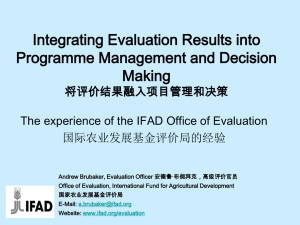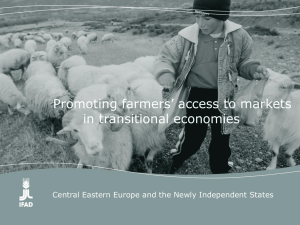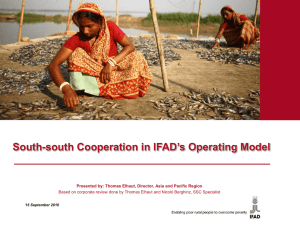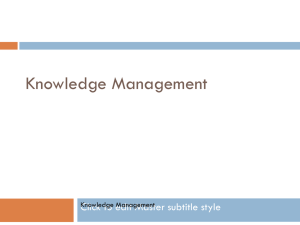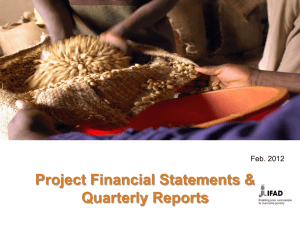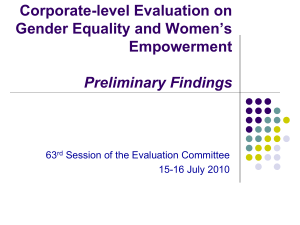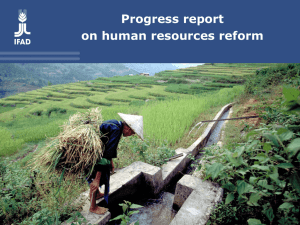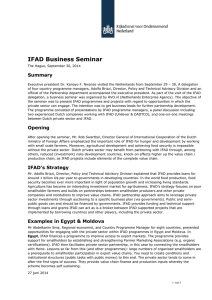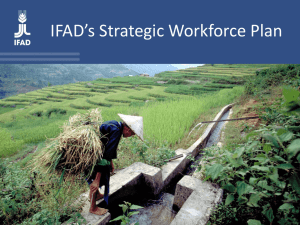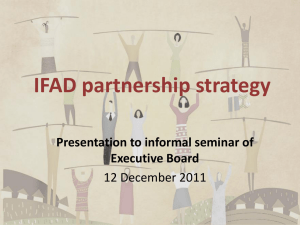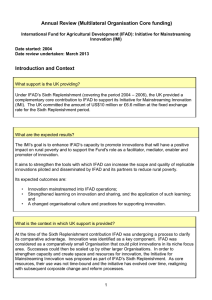Current IFAD SSC
advertisement
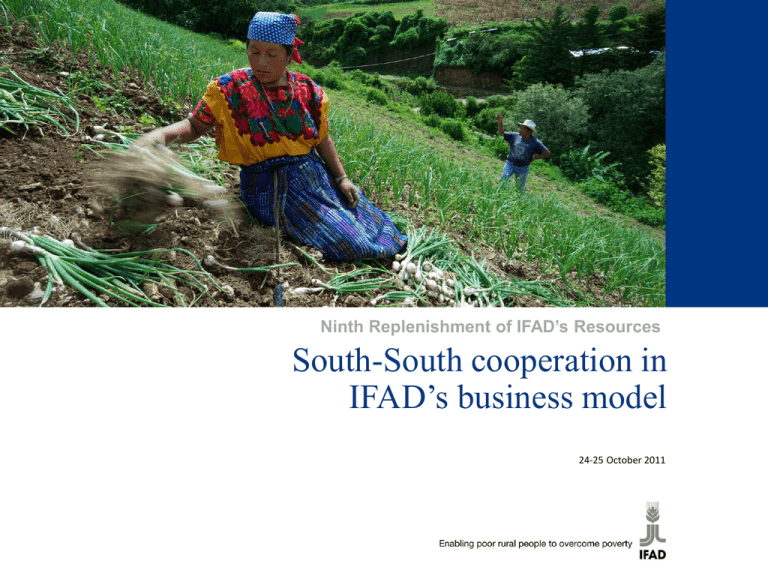
Ninth Replenishment of IFAD’s Resources South-South cooperation in IFAD’s business model 24-25 October 2011 SSC policy framework in IFAD • Agreement Establishing IFAD • IFAD’s Lending Policies and Criteria • 8th Replenishment Consultation Report • IFAD Strategic Framework 2011-15 • IFAD’s Engagement with Middle-Income Countries • SSC in IFAD’s Business Model for the 9th Replenishment Consultation Current IFAD SSC • SSC-focus in many IFAD Country Strategies (e.g. India, China, Brazil) • Strengthening project designs and KM strategies • Technology transfer facilitation and expertise mobilization • Grants in support of direct knowledge exchanges How SSC is implemented in IFAD • Project managers’ “exchange”, sharing, learning and replicating • Technical expertise from developing countries (i.e. India-Indonesia) • Private sector mobilization • Analytical work and regional networks: i.e. IFADAsia “South-South development theme” expansion A best practice in SSC: the Learning Routes • All stakeholders sharing and learning in the field • Focus on best practices • Local knowledge paid; self-esteem growth • Innovation plans • Support for adaptation, replication and implementation • On-line platforms Value added for IFAD: relevance • Appropriate knowledge • Focus on country needs • Scouting for rural innovations Value added for IFAD: effectiveness • Sustainability • Replication and scaling up potential • Probability of reaching development objectives Value added for IFAD: efficiency • Costs and risks reduction, with different business and different risks • The Morocco-Mauritania example: technical expertise shared; earlier and predictable scaling up Value added for IFAD: policy engagement • The example of the IFADsupported REAF (Reunion Especializada sobre Agricultura Familiar) • A new commitment gathering smallholder farmers, their families, their countries, and IFAD Country differentiation • Country needs, demands, opportunities • Providers’ and receivers’ flexibility • IFAD as a broker, a “supporter” and an “observing partner” MICs MICs LICs LICs Lessons learned • Support SSC champions • Demand-driven process • Good-quality norms • Evidence-based KM to share good practices The evolving IFAD approach to SSC • What are IFAD clients looking for? - New ideas; innovation and concreteness - Mainstreaming SSC into strategic and operational documents: IFAD policies, country strategies, projects and grant designs…. - Training for southern cooperation agencies or development banks - Twin arrangements for capacity building Managing SSC in IFAD • Present: diversity, flexibility, innovation, decentralization • Future: corporate strategic dimension - SSC systematization - Scaling up - Monitor financing of South-South cooperation by IFAD - Continue brokering and facilitating - Establish a virtual best practices’ “marketplace” where demand and offer can meet Conclusion • IFAD is already “doing” SSC • Raise level of mainstreaming of SSC in IFAD strategic and operational documents • Mobilize country offices to strengthen IFAD’s contribution to South-South cooperation Thank you Thank you!
